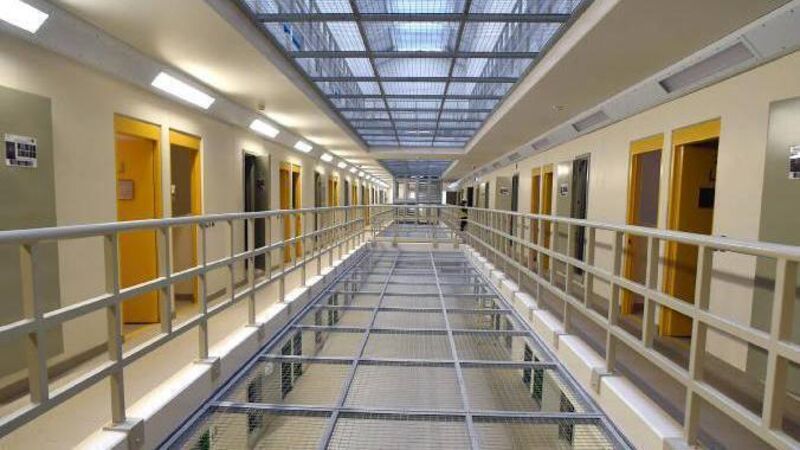More than 100 inmates on addiction services waitlist at Cork prison

A spokesperson for the Irish Prison Service (IPS) told The Echo that as of August 31, there were 114 unique individuals that have engaged with the service so far this year in Cork prison, and the waiting list on the same date was 108. Picture: Eddie O'Hare
Almost as many people are awaiting addiction services as are receiving them in Cork prison, with over two thirds of the prison population struggling with addiction.
A spokesperson for the Irish Prison Service (IPS) told The Echo that as of August 31, there were 114 unique individuals that have engaged with the service so far this year in Cork prison, and the waiting list on the same date was 108.
As of Monday morning , there are 330 in custody at Cork prison, which has a capacity of 296, meaning around 34 inmates are sleeping on the floor.
Cork prison, currently operating at 111% capacity, along with almost all Irish prisons, have been consistently operating over capacity for more than a year according to daily prison population figures released by the IPS.
In total, 222 people are either waiting for or engaging in addiction services in Cork prison, representing just over 67% of the current population.
Caron McCaffrey, Director General Irish Prison Service told the Joint Committee on Drugs Use last Thursday that nationally, over 70% of those in custody are struggling with addiction, and that as of July 2024, over 600 prisoners were engaged in addiction counselling, with more than 800 awaiting access to these services.
“This shows the scale of the problem which has been exacerbated by the ever-increasing prisoner population,” she said.
Ms McCaffrey explained that offering rehabilitate opportunities for prisoners is a key aim of the IPS, saying “Our goal is to change lives, not merely to detain them.
“By doing this we can reduce future potential harm and reduce the number of victims of crime in Ireland.” An IPS spokesperson told The Echo that there is a huge turnover of people who receive short services, and that these inmates cannot get the benefits of addiction treatments.
This is due to the length of waiting lists which are exacerbated by ongoing capacity and staffing challenges, but also because they would not have enough time to properly engage with the services and develop a structured plan.
They explained that the IPS “provides a health care service for prisoners with addictions in a structured, safe and professional way in line with international best practice,” and “continues to be committed to, and involved with, the National Drugs Strategy in partnership with community colleagues and organisations.”







 App?
App?


